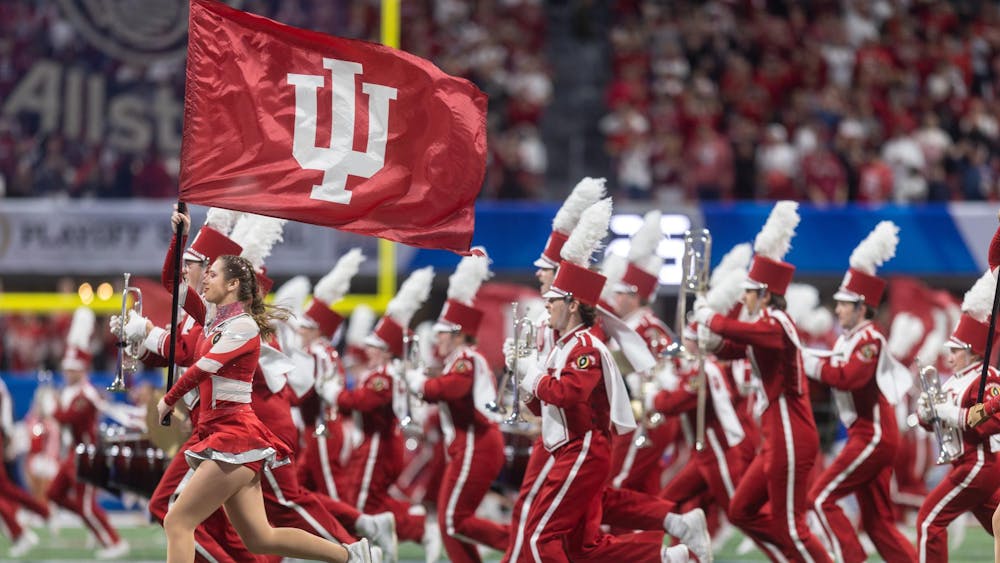Very few nonbinary artists have risen to prominence in popular consciousness.
When doing research for a previous article, I was hard pressed to find any nonbinary filmmakers.
Not because there aren’t any, but because there are few and they are not very well known.
There are, however, a few nonbinary poets and musicians who have achieved relative amounts of recognition.
DarkMatter is a duo comprised of Alok Vaid-Menon (they/them) and Janani Balasubramanian (they/them).
They came to IU last spring and gave a performance of poetry and essays on the trauma that whiteness inflicts, racism in queer communities, the prison industrial complex and other structural issues.
Their book “It Gets Bitter” is an e-book available on their website.
PWR BTTM is the moniker Liv Bruce (they/them) and Ben Hopkins (he/him) use for their queer punk band.
PWR BTTM also toured through Bloomington last fall with Mitski and Palehound.
I was able to conduct an interview with them at the time and we discussed what “normal” is and the process of unearthing one’s self.
The interview ended with the idea that you have to have a personal revolution and know your story matters.
At their concert the next day, I was too shy to say hello.
Perhaps being confronted with nonbinariness before I was ready to come out as nonbinary was too intimidating.
Grace Dunham (they/she) is a writer and activist closely linked to trans activist Reina Gossett (she/her). She is also Lena Dunham’s sibling.
Grace Dunham is deeply involved with prison abolitionist work, art reviews for the New York Times, poetry and other forms of activism.
Dunham tweeted last month a list of self-published autobiographies by trans people, revealing the often-troubling gatekeeping that happens with people who don’t conform to gender expectations.
Representation does not equal equity or equality, but the act of publishing a book is often an economic act as well as a representational one.
However, self-publishing and self-distributing bypass capitalism and silencing editors.
This is a big part of what most of these nonbinary artists end up doing.
Dunham recently self-published a chapbook on the Internet called “The Fool.”
The book has no official publisher and features a very simple neon green background.
The book is mostly composed of poems with earnest pleas against gendered oppression.
Through the self-publishing model, Dunham is able to express issues of value, fame and prison without facing censorship or being silenced.
There are some filmmakers and films about gender-noncomforming folks.
A film about queer activist of color Marsha Johnson is in its final editing stage. “Happy Birthday, Marsha!” is a collaborative work by Reina Gossett and Sasha Wortzel (she/her).
Additionally, two films by Eric A. Stanley (they/them) and Chris Vargas (he/him), “Criminal Queers” and “Homotopia,” were created on shoestring budgets and were loosely disseminated into circulation and screenings in academic contexts.
“Criminal Queers” reflects on queerness and the prison industrial complex, while “Homotopia” reflects on homonormativity in the age of gay marriage.
Many films made by gender-noncomforming folks are made on small budgets and circulated in specific circles.
This can, of course, feel restrictive, but it also means the films get to be made with at least some freedom that comes with bigger budgets.
Additionally, even in gender-nonconforming communities, white people are often privileged.
Bands like PWR BTTM or writers like Grace Dunham have more social capital in this element of privilege than DarkMatter or Reina Gossett.
It’s easy to ask for better representation or more mainstream acceptance, but in reality what’s needed is more access to resources and political equity.
jkrathwo@indiana.edu
@lordjoshuabyron





